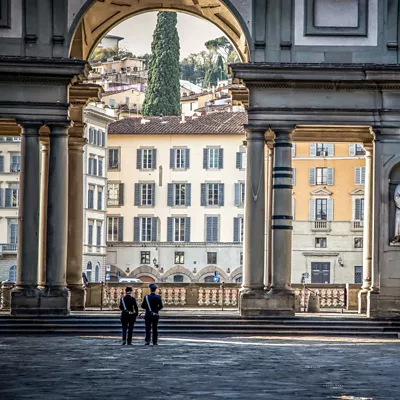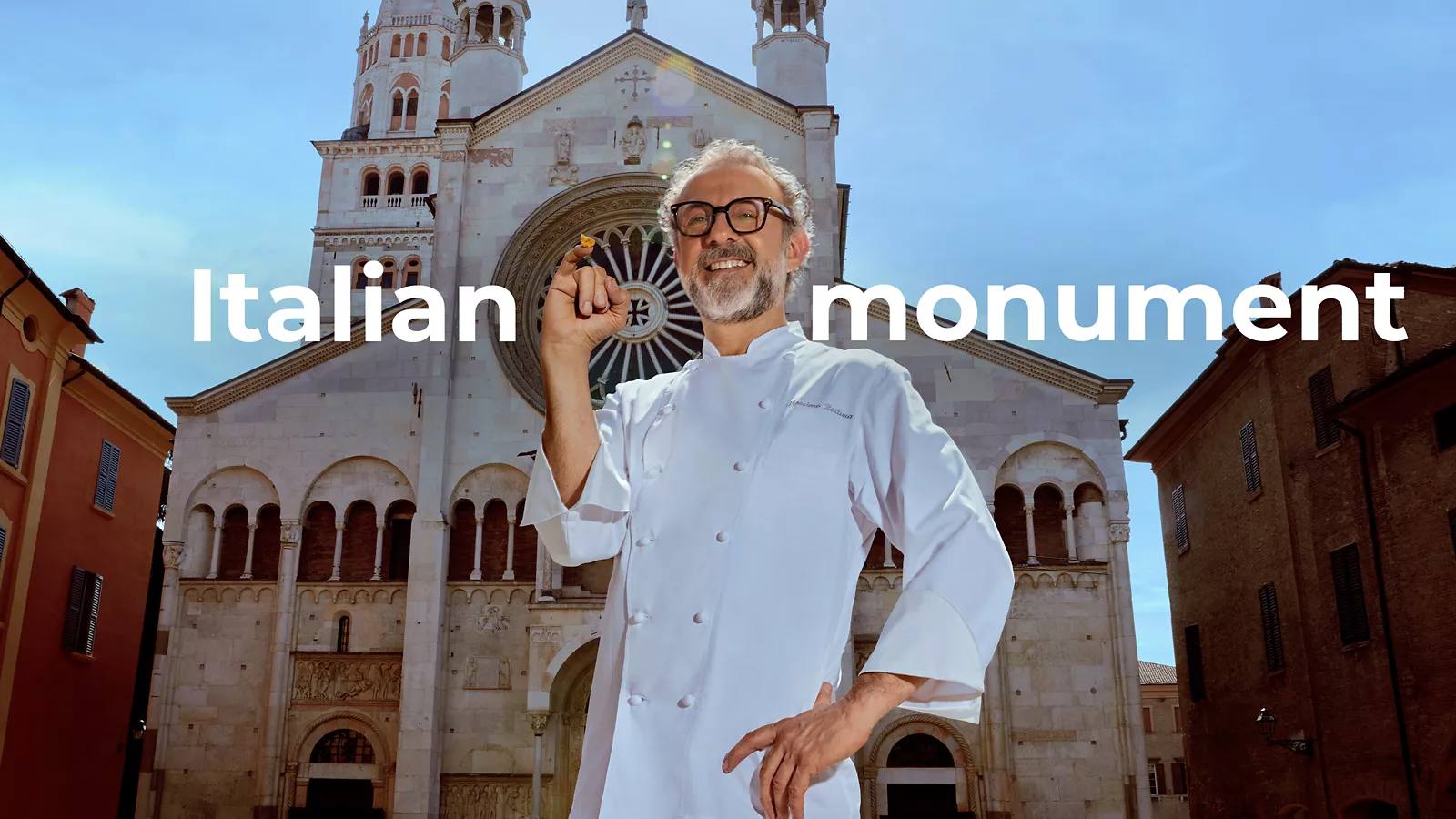'In every city and town in Italy you can find a masterpiece that enthralls you, and from which you can learn something'.
A taste for discovery: from the Sardinian desert to the peaks of Le Marche
The places that always amaze and invigorate me are those that can only be discovered with a bit of effort. Such as the beach of Piscinas, in Sardinia: to get there and enjoy the spectacle of the sand dunes, you need to cross a dirt road and a small river; or the hermitage of Monte Catria, in the high Marche region. At 1701 metres, it is a truly spiritual destination, also mentioned by Dante in the Divine Comedy.
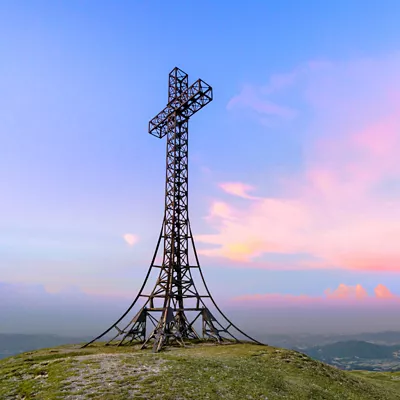
With your head in the clouds, in Modena and on Mount Etna
I have some unforgettable travel memories of Italy that I will always carry with me. They are like snapshots: the journey in a plane from the United States back home, with the incomparable pleasure of tortellini at Tortellante in Modena in my mind, or the excitement of an aperitif on Mount Etna, suspended between heaven and hell.
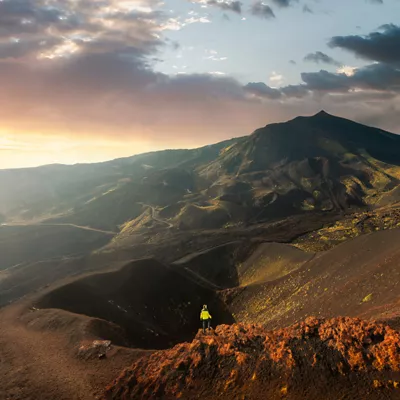
The mysterious Po Valley
In Emilia-Romagna, concealed in the fog, is my valley, which guards and protects a treasure. When you look closely, without seeing anything clear, you can take your imagination beyond reality. At the end of this journey into the imagination, you can explore the quiet and peaceful places in the centuries-old park of Casa Maria Luigia, the house-guest lodge that I have opened in the Modenese countryside. And you can stay the night there, cocooned in tranquillity.
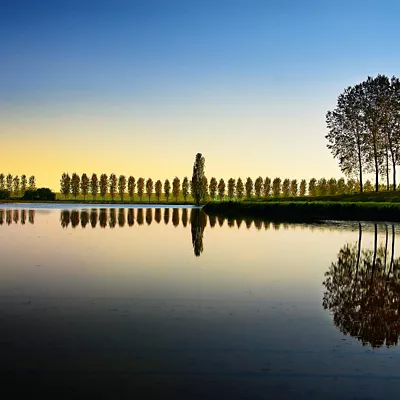
The unforgettable flavours of Samboseto, Parma
I have another ingrained memory: on 30 September 1970, on my eighth birthday, my parents took me to a mythical place, a gastronomic landmark in the Parma countryside: Peppino and Mirella Cantarelli's trattoria. It was my first real culinary experience, and I can still taste savarin, a rice Timbale enclosed in a crust, and guinea fowl made in clay.
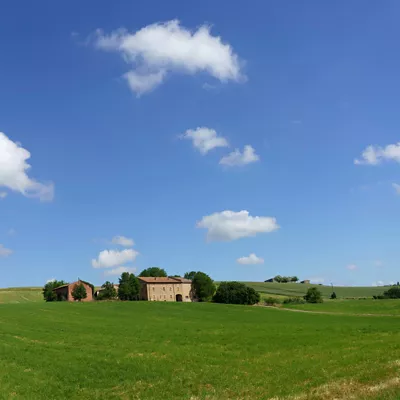
A futuristic appearance at the Uffizi Gallery
When I unexpectedly stumble upon something marvellous, it’s as though an arrow has pierced my heart.
The day after Gucci Osteria opened in Florence, I found myself walking alone through the city, and realised there was no one at the entrance to the Uffizi. I asked if it was closed, 'No, it's just early,' was the reply. I passed the grand staircase and found myself in a corridor with vast glass windows, flooded with magical light. I was walking through the Hall of the 13th century and suddenly I retraced my steps and saw it: in front of me was the Madonna of All Saints, shining with pure gold and orange mouldings. That Madonna is a fragment of the future, a spaceship (even in its appearance) that comes from the past to transport us towards the future, to re-appropriate new and infinite cultural galaxies.
